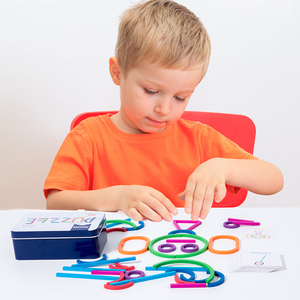Introduction to Learning Games for Year 6
Learning games for Year 6 are essential tools that help students engage with their studies in a fun and interactive way. Designed specifically for children aged around 11 years, these games support curriculum-based learning while nurturing critical thinking and problem-solving skills. Through diverse educational content, Year 6 learning games make studying a delightful experience, encouraging students to grasp core concepts in mathematics, science, language arts, and more.
Types of Learning Games for Year 6
- Online Learning Platforms: Websites and applications offering interactive activities and quizzes that target various subjects taught in Year 6.
- Board Games: Physical games that combine strategic thinking and academic knowledge, suitable for group play to encourage teamwork.
- Card Games: Easy-to-carry educational games that promote quick thinking and recall, often focusing on vocabulary and mathematics.
- DIY Games: Customizable games that allow educators and parents to create tailored challenges that meet individual learning needs.
Applications of Learning Games for Year 6
- Reinforcement of Curriculum: Games make it easier to revisit core concepts, ensuring students understand and can apply their knowledge in various contexts.
- Collaborative Learning: Engaging students in group gaming promotes teamwork and peer learning, enhancing their social skills alongside academic performance.
- Assessment Tools: Many learning games incorporate quizzes that help educators track progress and identify areas needing additional focus.
- Home Learning: Parents can use learning games to provide additional learning opportunities outside the classroom, tailored to their child’s pace and interests.
Features and Benefits of Learning Games for Year 6
- Engaging Content: By utilizing captivating graphics and storytelling elements, these games capture the attention of Year 6 students, making them eager to learn.
- Diverse Learning Styles: Learning games cater to various learning preferences — visual, auditory, and kinesthetic — ensuring that all children can benefit from educational play.
- Instant Feedback: Many learning games provide immediate results, allowing students to understand their mistakes and make necessary adjustments without feeling discouraged.
- Encouragement of Healthy Competition: Friendly competition through scoring and leaderboards motivates learners to improve their skills while enjoying the process.






















































